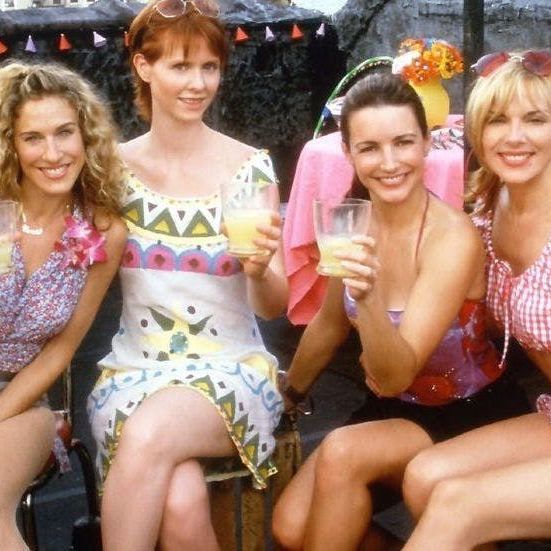There’s a scientific explanation behind all your bad (and good) relationship habits
Feel like you’re repeating yourself in each new partnership? This study shows that changing your partner doesn’t necessarily change your relationship dynamics.
There’s a reason why, when writing about relationships, articles often reference Sex and the City.
The show deals expressly with relationships in all of their various forms, and what those relationships mean to its quartet of female characters. And the show gives each of its awesome foursome a number of different partners so as to best illustrate its point: that the greatest love you’ll have in your life is with yourself. And then with your friends.
Think about it – no matter who Carrie, Charlotte, Miranda or Samantha were with at any given moment in the series their core essence did not change. They were, largely, who they were in each relationship, for better or for worse.
For better in the sense that each woman’s clearly defined personality did not shift too much within the confines of her partnerships.
For worse in the sense that you could often see history repeating itself. Carrie’s neediness played out again and again and again in her relationships with Big, Aidan, Berger and even Petrovsky. Likewise, Charlotte’s hyper-romantic streak with Trey was also there in her relationship with Harry, just softened and sanded down at the edges.
The writers of Sex and the City were onto something, though. Research from the University of Alberta has shown that no matter who your partner is your relationship dynamic is fairly fixed.
The study, which surveyed 554 people in Germany over the course of eight years, found that many relationship patterns – both good and bad – were repeated over and over again, even after a couple had broken up and were dating new people.
The point? That a breakup isn’t going to give you a different relationship. The only way to do that is to work on yourself.
“Although some relationship dynamics may change, you are still the same person so you likely recreate many of the same patterns with the next partner,” Matthew Johnson, lead author on the study said. “New love is great, but relationships continue past that point.”
Often the ‘honeymoon’ phase at the start of a new relationship convinced participants that they were entering into something completely new, a belief coloured by a bad breakup or the excitement of a new partner. “There’s a lot of change in between, but more broadly we do have stability in how we are in relationships,” said Johnson.
There are two ways of looking at this: that we’re all doomed to repeat our same relationship mistakes over and over again, in perpetuity, as empires rise and fall and rise again.
Or we can look on the bright side – no matter who we are in a relationship with we retain our true selves. A partner will never change us. The most important relationship that we will ever have is with ourselves.
“Who you are matters,” explains Johnson. “And addressing personal issues is going to be very impactful on whether you’ll be successful in your relationship or not.”
What was it that Samantha said to Smith? (And Richard, for that matter? Proving this article’s point entirely.) “I love you, but I love me more.”
Please be aware that this article was originally published on 28 August 2019, but has been updated throughout to include new information.
Images: Getty / Unsplash
Source: Read Full Article


